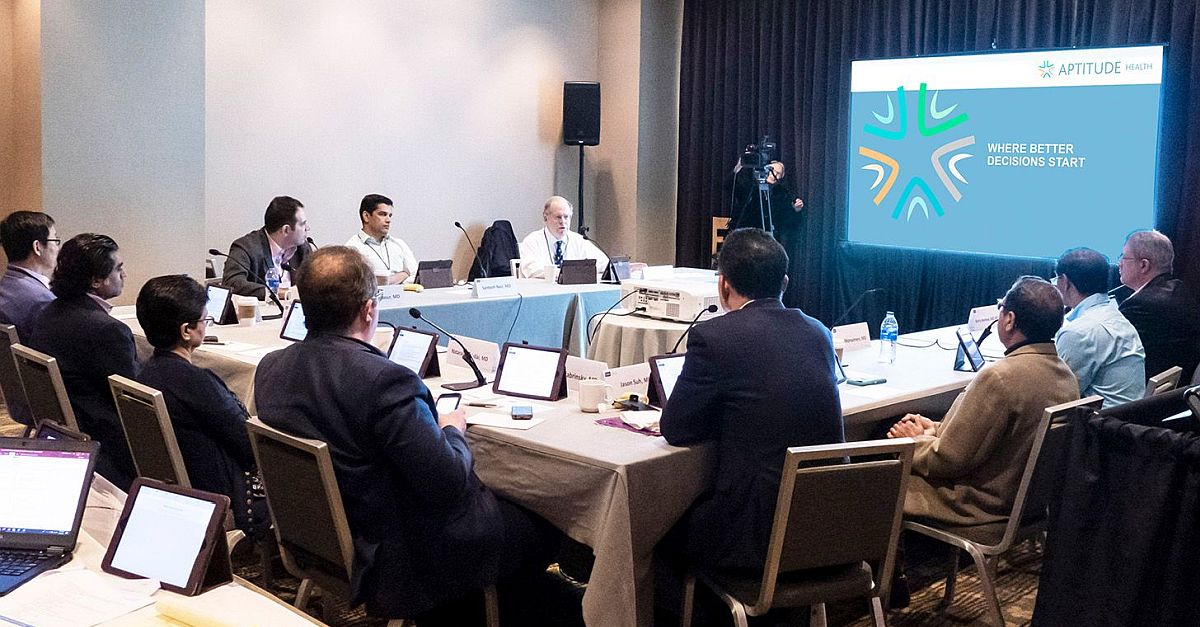At Aptitude Health, we strive to understand patterns of care that affect cancer patients not enrolled in clinical trials. We identify factors influencing prescribing habits that shape best practices and positively impact patient care.
CASES Summits are regional events where approximately 60 oncologists and hematologists from large community practices, along with leading scientific experts, gather to discuss the impact of emerging clinical data and market dynamics that drive their treatment of patients in the community setting. Insight reports are then developed to reflect these discussions, yielding a wealth of information about treatment approaches, required resources, and educational needs that exist in community practices.
Washington DC CASES Summit Highlights From Our CMO
Here are some of the key takeaways from the recent CASES Summit Meeting that occurred in Washington DC
- In ALL, and despite the different mechanisms of action, physicians feel that blinatumomab and inotuzumab are equally effective but blinatumomab is more likely to induce MRD negativity. In addition, participating physicians are more comfortable managing the AEs associated with blinatumomab
- In first-line AML, all of the participating physicians order molecular marker tests for their patients; most begin therapy before test results return, although some wait for the results and then modify their treatment on the basis of the findings. The 7+3 regimen remains the standard of care for most young patients with good PS, though most physicians indicated they refer these patients to transplant/specialty centers for evaluation. Older patients with poor PS who are considered transplant ineligible are most often treated locally, and the combination of venetoclax + HMA is becoming a preferred treatment option in this setting
- In first-line multiple myeloma, RVd followed by transplant is the preferred current standard for transplant-eligible patients, though some physicians are beginning to use KRd in higher-risk patients. In transplant-ineligible patients, RVd is one of the standards, but some physicians are beginning to adopt dara-RVd. There is some concern whether the extra efficacy justifies the added cost, as daratumumab can be used effectively in the relapsed/refractory setting
- In NSCLC, physicians do not always rechallenge with another checkpoint inhibitor when patients progress after first-line immunotherapy. In fact, they prefer either docetaxel or a clinical trial for this group of patients. The majority of physicians do test for NTRK fusion positivity in their patients. The summary report explains to what extent physicians use entrectinib or lorlatinib
- Treatment of ALK mutation-positive patients with lung cancer: the second-generation ALK inhibitors alectinib and brigatinib are increasingly being utilized over crizotinib in first-line ALK mutation-positive patients. However, patients who are stable on crizotinib are generally kept on therapy. In patients for whom crizotinib fails, both alectinib and brigatinib are considered reasonable second-line options
- In breast cancer, hormone-positive first-line metastatic disease: physicians appear to have fully adopted CDK4/6 inhibitors into their treatment paradigms. In some elderly residential care settings, some physicians would favor fulvestrant and/or abemaciclib (dosed continuously), as intermittent dosing schedules can be challenging for the limited nurse resources therein. The summary report from the breast cancer session also highlights the go-to approach for patients with visceral disease and the differences in use of eribulin and ixabepilone
Aptitude Health seeks no funding for our CASES events but the detailed insights reports and silent observation rights are available for purchase. Each report provides key takeaways in aggregate, and analysis of event-specific discussion and integrated polling. Additionally, ,the reports provide an overview of the current disease landscape and how it likely impacts specific life science partners as described by the attending physicians.
To get more details about available reports and our upcoming meetings, click here.

